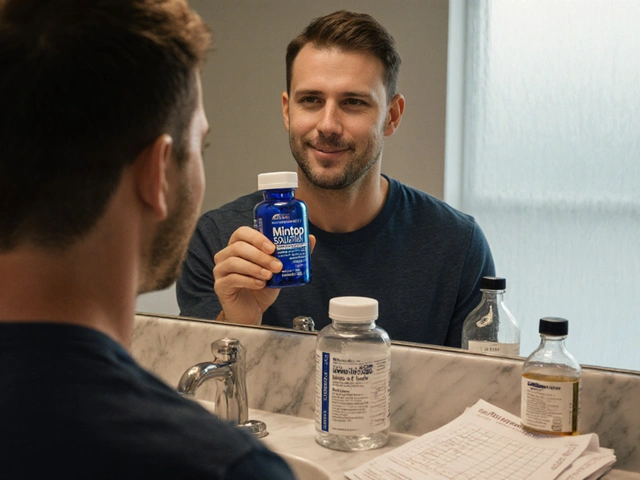Chronic hiccups: causes, tests, and real treatments
Chronic hiccups can be relentless and ruin sleep, work, or meals. If hiccups last more than 48 hours or come back for weeks, they may be "chronic" and need real answers. This page explains common causes, what tests doctors order, simple fixes you can try, and proven treatments used by clinicians.
Causes and when to see a doctor
Hiccups happen when the diaphragm and the nerves controlling it fire in an abnormal loop. Short hiccups come from eating too fast, carbonated drinks, sudden temperature shifts, or laughing hard. Chronic hiccups, though, often point to something deeper—irritation of the vagus or phrenic nerve, acid reflux, central nervous system problems, infections, certain medications, or metabolic issues like kidney failure. Sometimes no clear cause is found, which is frustrating but common.
What doctors do first is a focused history and exam. Expect questions about how long the hiccups last, when they started, what makes them worse or better, recent surgeries, drug history, alcohol use, and any weight loss or fevers. Tests may include blood work, chest X-ray, CT or MRI of the brain, endoscopy for reflux, or nerve studies depending on clues.
Treatment options and quick tips
Simple home tricks often help short attacks and sometimes chronic cases. Try sipping cold water slowly, holding your breath for 10 to 20 seconds, swallowing a teaspoon of sugar, or breathing into a paper bag. If reflux is suspected, cutting spicy foods, caffeine, alcohol, and late meals can reduce hiccup triggers.
For persistent cases, doctors use medications that calm nerves or the diaphragm. Common options include chlorpromazine, baclofen, gabapentin, and metoclopramide; each has pros and side effects so doctors tailor choices to you. In rare stubborn cases, nerve blocks or surgical procedures may be considered after careful review.
Many people respond to low-dose gabapentin when reflux treatment fails. Antipsychotic chlorpromazine is FDA-approved for hiccups and works well but can cause drowsiness and low blood pressure. That’s why doctors weigh benefits against risks and monitor you closely when starting these drugs. Some alternative approaches like acupuncture, hypnosis, or electrical stimulation help a few people, though evidence is mixed.
When should you see a doctor right away? See urgent care or your doctor if hiccups last over 48 hours, prevent sleep or eating, pair with chest pain, breathing trouble, fever, sudden weight loss, or neurological symptoms like weakness or confusion. Don’t wait—long-lasting hiccups can signal a treatable medical issue.
A clear plan helps: track attacks, try simple fixes at home, treat reflux if present, and see a clinician if nothing improves. Keep a short diary of attacks, foods, meds, and timing to help your clinician find the cause faster. Bring your notes to appointments and ask about both lifestyle fixes and medication options. If tests point to a nerve or brain cause, specialists like neurologists, ENT doctors, or gastroenterologists work together to fix the problem.
Don’t ignore the social and mental toll—chronic hiccups can make you anxious or avoid meals and public outings. Mention this so your care team addresses quality of life as well as stopping the hiccups.

Hiccups and Mental Health: The Psychological Effects of Chronic Hiccups
Chronic hiccups are more than just a pesky annoyance; they can affect mental well-being and lead to stress, anxiety, and social discomfort. This article delves into the psychological impact of chronic hiccups, exploring how they disrupt daily life and offer practical tips for those affected. It sheds light on the connection between physical and mental health, providing coping strategies to address the challenges of living with this condition.
Health TopicsLatest Posts
Tags
- online pharmacy
- medication safety
- generic drugs
- medication
- dietary supplement
- side effects
- online pharmacy UK
- drug interactions
- mental health
- impact
- online pharmacies
- statin side effects
- dosage
- generic vs brand
- pediatric antibiotics
- antibiotic side effects
- skin health
- health
- pain relief
- dietary supplements




